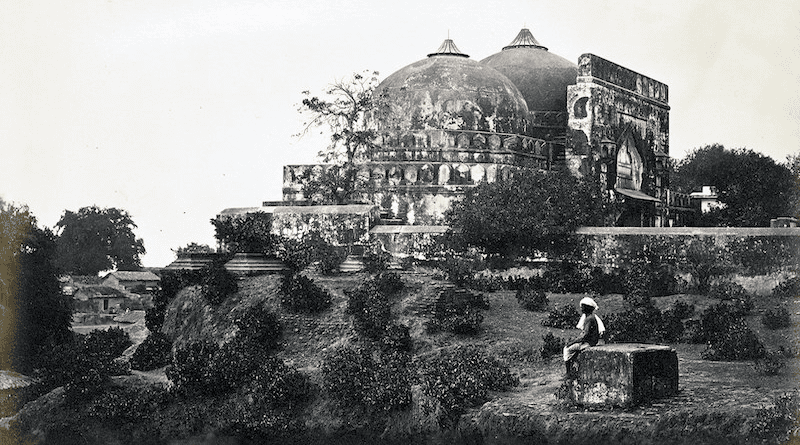Babri Masjid Tragedy: Threats Coming Ahead – OpEd
By Ahmed Khan
India, the world’s so-called largest democracy vehemently targets minorities and world heritage sites with impunity. The international community does not bother to even ask India of protecting these cultural sites and protect minority rights. BJP, the political wing of RSS has shown brutality and human rights violations challenging the basic principles of international norms and values. This ultra-nationalism was generated in the 1920s when the term Hindutva got significant. However, the way India is being ruled under this extremist ideology is devastating not just for minorities like Muslims and Christians but also for Hindus as well. One of these acts of extremism occurred on December 6, 1992, when Babri Majid was demolished. Ram Janambhomi Movement led by K.K Advani claimed that the mosques were built on the exact spot where Hindu God Ram was born. National Spokesperson for the Hindu Nationalist Group, Vishva Hindu Parishad stated, “I felt very proud when the mosque was demolished. From that time onward, the word ‘Hindutva’ — or the feeling of being Hindu — came into everybody’s mind. It was a big success”.
Babri Masjid was built in 1529, by Mir Baqi. Mahant Raghubir Das twice filed a suit to build a temple in the courtyard of the Mosque that was rejected by the Faizabad court. In 1949, a Ram idol appears from inside the mosque evincing a kind of divine revelation for the Hindus. Afterward, Hindus started praying inside. There are pieces of evidence depicting that the idol was smuggled inside the mosque. Seeing the situation, The Congress Government declared the Mosque as a contested area and no one was allowed to enter it. Hindus filed cases to be allowed to offer Pooja which was granted by the court. In 1961, Muslims also filed a suit to be granted the land and the ram idols to be removed from the Mosque instigating marginalization and Hindu extremism. In 1984, VHP establishes the Ram Janambhomi Movement, and L.K Advani was made the leader of the organization. District Judge kept on allowing the Hindus to conduct poojas inside the Mosque. Muslims in return constituted a Babri Mosque Action Committee. In 1990, L.K Advani started Rath Yatra from Somnath to Ayodhya to seek support from the general public. Communal riots started in the region.
On December 6, 1992, the Babri Mosque was razed to the ground. The government of India has backed such action through acts and laws. For example, under the Narihsma Rao government, an ordinance was issued acquiring 67.7 acres of land. Central Government acquired the land. Despite all the recordings of the actions and the culprits, the CBI court acquitted all accused for the demolition. An inquiry commission produced a damning report about the conspiracy to destroy the masjid and the planning that went into it.
This evidence was seen as worthless by the CBI court. As per news reports, the court said that the evidence is not acceptable because the originals had not been produced. The photographs could not be accepted because there were no negatives, even though the person who took the images testified from the witness box to have shot them.
It shows that minorities are not safe in India. State-sponsored extremist groups target these minorities with impunity. They know that they won’t be held accountable for whatever they will do. Taj Mahal was declared a UNESCO World Heritage Site in 1983. In 2007, it became one of the Seven Wonders of the world. In 2017, a Rajya Sabha member, Vinay Katiyar claimed that the monument was Shiva Temple ‘Tejo mahalaya’. There are currently 36,000 Mosques that Hindus claim was built over the temples. It severely impacts the existence of these sites. There is no doubt like the idol smuggling inside the Babri masjid, Hindus will construct anything to affect these Mosques, and the state will back them. The international community must not be so hesitant in questioning such actions, at least. When Pakistan is being targeted based on Indian propaganda, the international community should avoid dual-face acts when it comes to protecting the norms and values necessary for the peaceful co-existence of states.
Ahmed Khan is a student at National Defence University, Islamabad of MPhil in International Relations.

